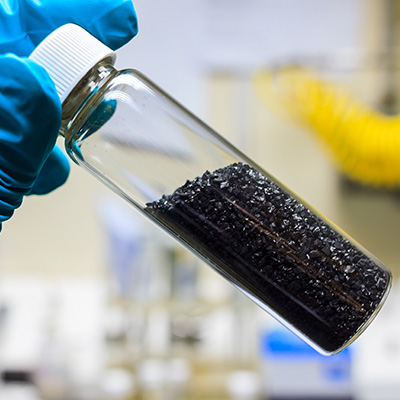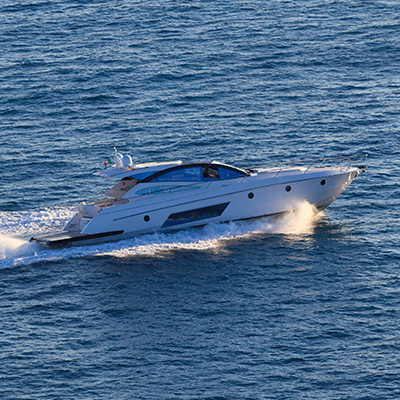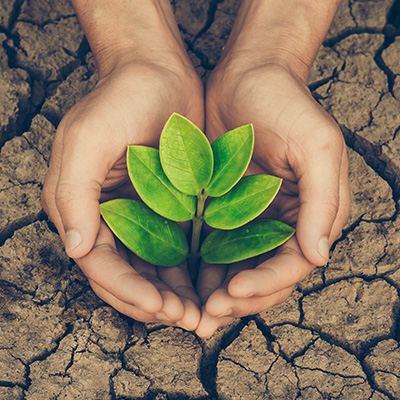KIGAM POHANG BRANCH
- Exploration System Research Department
- Advanced Geo-Materials Research Department
- Management Department
- R/V Management Department
Korea Institute of Geoscience and Mineral Resources
Since the opening of the Pohang Branch, this organization has made efforts to establish its unique role and responsibility as a new (and the only) local organization of KIGAM. Toward this goal, KIGAM has hired new staffs and made continuous efforts to develop and maintain the infrastructure of the branch. As a result, the number of resident staff members now exceeds the level of a research center, at 50, and the annual budget for research activities (salaries included) has increased to nearly 10 million USD. There were several noteworthy instances of progress in the research and outreach activities coordinated by the Pohang Branch in 2017. A new contract of ca. 32 million USD for a six year research program was agreed upon between KIGAM as the representative contractor of an R&D consortium and KAIA (the Korea Agency for Infrastructure Technology Advancement) as the ordering agency for the Ministry of Land, Infrastructure and Transport (MOLIT). The main purpose of the program is to develop directional drilling and mud circulation technology for an onshore drilling system applied from resource development plant research. In the research sector of advanced industrial mineral development, a new laboratory scale facility was constructed in order to support clay mineral application tests for biomedical purposes. The facility is featured with its contamination control systems, which at first stage can manufacture clean bulk clay material samples (0.5 ton per year) and test their quality and stability based on the good manufacturing practices (GMP) of Korea. The completion of the entire facility with the necessary equipment and instrumentation installed is expected to occur around the middle of 2018. Full-scale activity of a larger project was also started to develop manufacturing processes of bulk materials for bio-medical use in the research sector of advanced industrial mineral development. Research funding was granted for five years by the Ministry of Trade, Industry and Energy (MOTIE) via the Korea Institute for Advancement of Technology (KIAT) and related local governments (Gyeongsangbuk-do and Pohang-si). This year, conceptual and detail designs for a test bed and outdoor silos were completed and the necessary construction site was secured inside the branch. The completion of all construction processes is expected to be in early 2019. After moving to a new homeport and successfully settling in Pohang, the RV Tamhae2 (2000 ton class), a 3D geophysical survey vessel of KIGAM, finished her mission for this year safely and satisfactorily. The total sailing distance was nearly 20,000 km, and 15 campaigns including safety training and sea trials were completed without serious technical issues. During idle days, more than 810 visitors were welcomed by Tamhae2 for educational or business purposes. In 2017, mid-November, a 5.4 M (Richter magnitude scale) earthquake occurred. The epicenter was located ca. 1.3 km from the branch. The damage was so great that given the shallow depth of origin, the central government declared the area "a disaster area" in Pohang. Owing to the well-prepared earthquake-resistant design and construction, the damage within the precinct was relatively minor.

01
ADVANCED INDUSTRIAL
MINERAL DEVELOPMENT
MINERAL DEVELOPMENT
- Assessment of the development potential of high-value non-metallic minerals based on their grade and the quality of the raw ores
- Studies of the safety and functionality of non-metallic minerals for industrial usage
- Construction of infrastructure for the processing of high value non-metallic minerals and the development of relevant manufacturing processes
- Development of core technologies for the application of non-metallic minerals to new and growing industries (e.g., the pharmaceutical, cosmetic therapeutic, food additive industries)

02
RESOURCES
ENGINEERING PLANT RESEARCH
ENGINEERING PLANT RESEARCH
- Studies of resource development technology
- Field tests and studies of practical applications of resource development plant technologies
- Construction of pilot plants for the drilling, production, and processing of oil and gas

03
MARINE EXPLORATION
SYSTEM RESEARCH
SYSTEM RESEARCH
- 3D seismic exploration system focused on small boats
- Development of seismic processing software for shallow areas
- Field tests and evaluation studies of marine exploration equipment and methodologies

04
FUSIONAL MARINE
GEO-TECHNOLOGY RESEARCH
GEO-TECHNOLOGY RESEARCH
- Studies of practical applications based on collaborations between industry, academia, and institutions
- Studies of marine geological issues and the demands of local communities
- Studies of marine geo-technological approaches related to special demands such as social security, defense, and sub-sea greenhouse gas storage
- Studies of subsea space development and utilization for practical applications
- Studies of coastal-to-deep sea linkages of marine geological phenomena